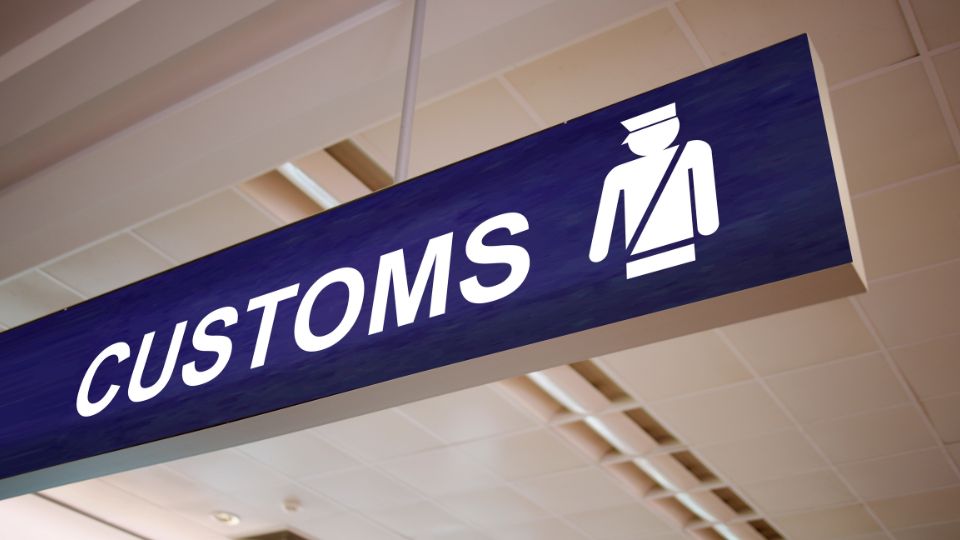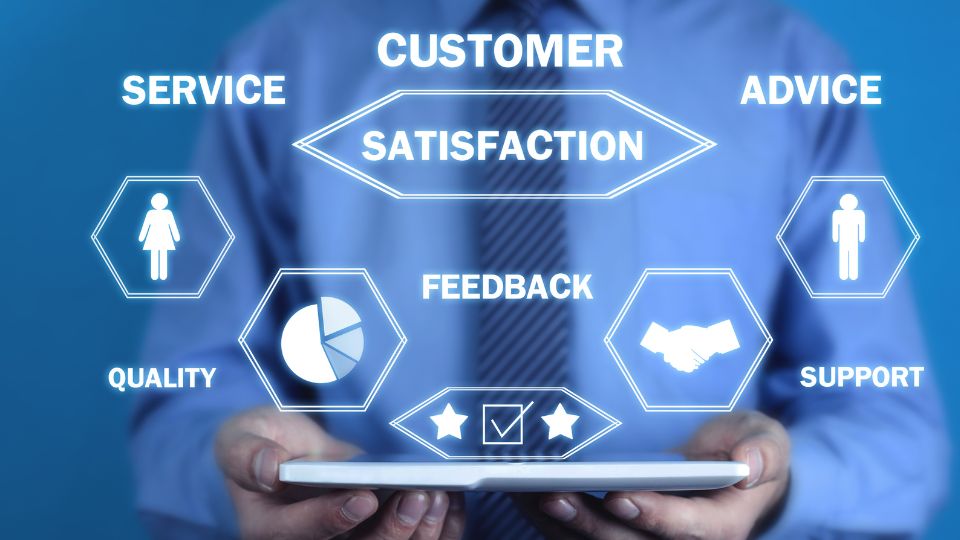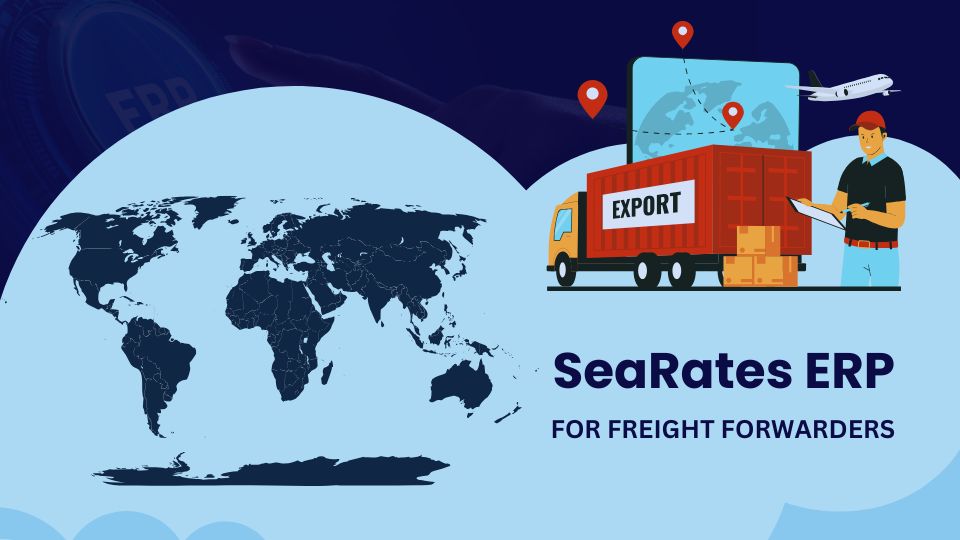Freight forwarding is a high-stakes industry where accuracy, efficiency, and timeliness can’t be compromised.
As global trade expands, freight forwarders face new challenges. These include tight deadlines, rising costs, and following complex regulations across countries.
These challenges can quickly lead to inefficiencies, delays, and dissatisfied customers without the right tools.
Using manual processes or outdated systems doesn’t help. You need modern, integrated solutions to handle these growing demands.
Enterprise Resource Planning (ERP) software is one such tool.
ERP software allows you to run operations smoothly, make smarter decisions, and work more efficiently.
It helps track shipments, manage logistics, ensure compliance, and improve overall performance.
In this article, we will explain how ERP software can solve challenges in the freight forwarding industry. We will also highlight its important features and provide tips on choosing the right system for your business.
Let’s first define ERP software.
What is ERP Software?

ERP (Enterprise Resource Planning) software is a system that helps businesses manage their key processes in one place. It combines tasks like accounting, inventory tracking, and employee management into a single platform. ERP software provides a clear and real-time overview of operations by automating repetitive work.
Importance of ERP Software in Freight Forwarding
Freight forwarders manage complex tasks daily, such as organizing shipments, following international trade rules, and tracking goods across different locations. Handling these manually or with separate systems can be difficult and lead to mistakes.
ERP software helps solve these problems with tools designed specifically for logistics and supply chains. It enables smooth management of shipments and ensures compliance with regulations. It also offers better visibility of goods in transit.
With ERP software, freight forwarders can work more efficiently and reduce errors.
To understand more let’s explore its key features.
Key Features of an ERP System for Freight Forwarding

Here are the features that freight-specific ERP software generally has:
- Centralized Operations Management: ERP systems connect tasks like inventory, finance, and customer service in one platform, streamlining processes and improving teamwork.
- Real-Time Tracking and Logistics Management: Track shipments in real-time with instant updates and quick response to delays. This transparency improves efficiency and helps build trust with your customers.
- Customizable Reporting and Analytics: Delivery times, fuel costs, and cargo levels are crucial metrics. ERP systems offer customizable reports and dashboards, helping you focus on this data. This enables you to make better decisions and identify ways to improve your operations.
- Finance and Compliance Management: ERP systems automatically handle invoices, convert currencies, and maintain regulatory compliance across regions. This minimizes errors and helps your business avoid penalties.
- Scalable and Flexible: ERP systems easily expand with new features, modules, or even users as needed.This ensures that the system meets your growing operations.
These features help you work more efficiently, improve customer satisfaction, and prepare for future growth.
Let’s analyze how ERP software can do wonders in the Middle East and APAC Region.
ERP Software Benefits: Middle East and APAC Region

Freight forwarders in the Middle East and Asia-Pacific (APAC) regions face unique logistics challenges due to high trade volumes, regulatory diversity, and complex supply chains.
This is how ERP systems can enhance supply chain operations:
1. Simplifies Regulatory Compliance
ERP systems handle diverse and evolving regulations in both regions. They automatically process GCC Customs Union documents and ensure strict compliance with UAE trade regulations.
In APAC, ERP systems integrate with Singapore’s TradeNet. This streamlines customs declarations and ensures compliance with local laws.
By automating these processes, ERP systems reduce delays and minimize the risk of compliance penalties.
2. Improves Efficiency
Freight forwarding ERP systems streamline various operations across major Middle Eastern and APAC trade hubs. It enables smooth cargo flow through high-traffic ports like Dubai’s Jebel Ali Port or Shanghai Port in the APAC region.
The system helps freight forwarders reduce processing times. It efficiently manages high-volume containers in APAC ports and temperature-sensitive shipments across Gulf ports.
3. Improves Scalability
Freight forwarding ERP software adapts to the unique business needs of both regions. They efficiently manage free zone logistics operations in Dubai’s JAFZA and coordinate with shipping alliances in Singapore.
During peak season events like the Dubai Expo, or Chinese New Year, they ensure smooth operations even with high-volume cargo.
4. Boosts Visibility and Tracking
ERP systems provide real-time shipment tracking and instant updates. It offers automated notifications in multiple regional languages, including Arabic, Mandarin, and English.
This, in turn, ensures complete visibility of goods in transit and boosts client satisfaction.
5. Enhances Financial Management
Managing finances in international freight is challenging, but freight forwarding software simplifies the process. The system handles complex regional financial requirements with ease. It automatically includes UAE VAT, Saudi Zakat, and various APAC tax structures to generate e-invoices and handle multi-currency transactions.
6. Facilitates Collaboration
ERP solutions allow smooth coordination between offices, warehouses, and partners. They connect teams in different time zones, such as Dubai and Singapore. They provide Arabic and Asian language interfaces to improve communication and streamline data sharing. They also ensure all stakeholders receive real-time updates about their shipments.
How to choose the best ERP software for your business?
That’s what we will explore next.
What to Consider When Buying ERP Software?

Selecting the right ERP solution can significantly impact your operational efficiency and scalability.
Here are the factors you can consider while selecting the best freight-forwarding ERP software:
- Ease of Use: When selecting an ERP system, choose one that is easy to set up and simple to navigate. A user-friendly system ensures that your team can easily operate it without extensive training.
- Industry-Specific Features: Make sure the software aligns with your freight forwarding needs. Look for essential features like real-time shipment tracking, route optimization, and integration with logistics platforms.
- Integration Capabilities: The ERP should integrate smoothly with your current systems. Make sure the software fits your business needs before selecting.
- Customer Support and Training: Select an ERP provider that offers reliable customer support and thorough training materials. Make sure the vendor provides ongoing assistance such as live chat or phone support.
With these key factors in mind, let’s explore why SeaRates ERP stands out as the ideal solution.
Why is SeaRates ERP the Perfect Choice for Freight Forwarders?

SeaRates ERP is an excellent choice for freight forwarders due to its comprehensive set of features. These features are specifically designed to streamline logistics operations.
It offers:
- Real-time shipment tracking to monitor cargo at every stage of transit.
- Automated documentation management to simplify the compliance process and reduce the risk of errors.
- Smooth integration with third-party systems and carriers.
- Tools for managing freight quotes, rates, and financial transactions in real time.
Additionally, the system’s scalability allows it to grow with your business, making it suitable for expanding operations in regional and international markets.
In short, SeaRates ERP offers efficiency, flexibility, and real-time insights. It helps freight forwarders optimize operations, reduce costs, and improve customer services.
| Streamline Your Freight Operations Today. Book a Demo with SeaRates ERP |
Conclusion
An ERP software is not just another digital tool – it’s a game changer for freight forwarding businesses.
In the absence of this system, imagine how much time your team spends on manual data entry. Stacks of documents pile up. Customers wait for updates. And while you manage delays and fix errors, opportunities slip away.
So, why freight forwarders need ERP software? It gives you the tools to stay ahead. By centralizing operations, automating key processes, and enhancing visibility, it transforms the way your business operates.
With ERP software, you get the time to focus on scaling your business, not on fixing mistakes.
The future of freight forwarding is digital, and adopting ERP is the first step toward transforming your business.
Embrace ERP technology today and lead the way in innovation and growth.
| Ready to boost your freight forwarding operations? Book a demo today with SeaRates ERP. Explore the digital tools and strategies to simplify your operations and fuel business growth. |
Frequently Asked Questions
1. What features should I look for when choosing ERP software for freight forwarding?
When selecting the right ERP software, you should consider key features like shipment tracking, multi-currency invoicing, automated documentation, and integration with existing systems, such as accounting and Customer Relationship Management (CRM).
Before making a decision, it’s also essential to evaluate scalability and ease of use.
2. How can ERP software help with compliance in different regions?
International trade regulations present complex challenges for freight forwarders. ERP systems simplify this process by automating document generation and maintaining report accuracy. This automation prevents compliance penalties and lets you focus on growing your business.
3. What are the common challenges when implementing ERP software?
Implementing any software has its challenges. These challenges include employee resistance, data migration issues, and disruptions during setup. You can overcome these challenges with proper training, a phased implementation approach, and support from the ERP provider.


